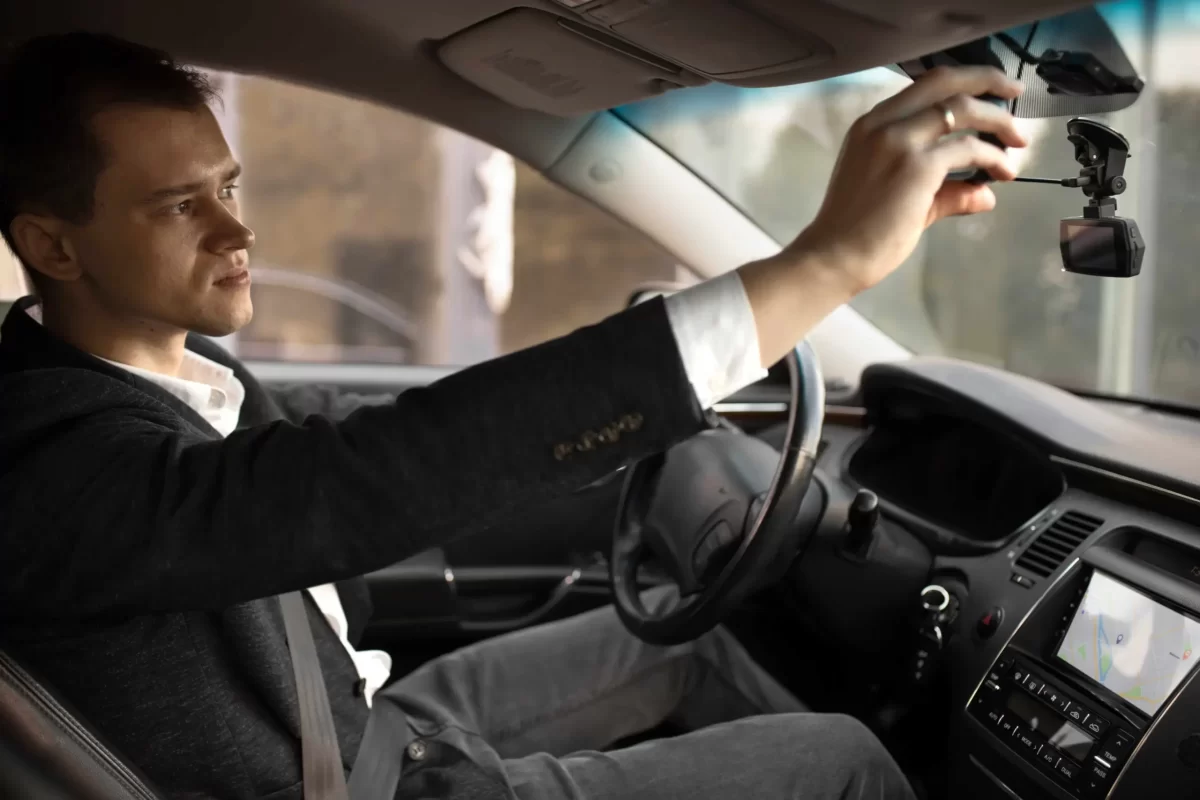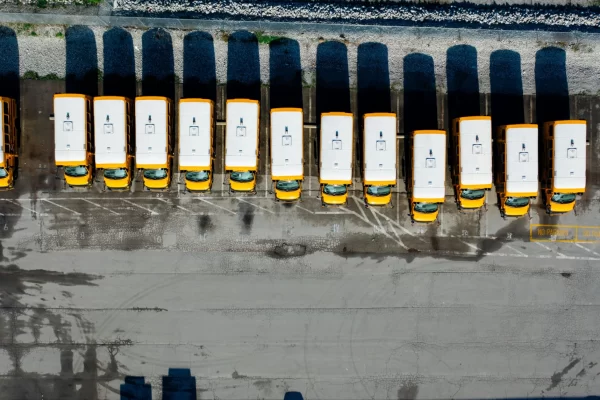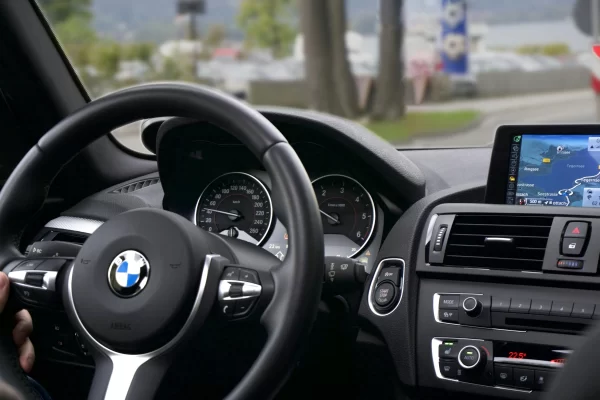Dash Cam Law Overview
Dash cams can protect your business—but are they legal? Before installing them in your fleet, here’s what you need to know. With safety and fleet management being top priorities, many businesses are exploring the benefits of these devices, not just for risk management but also for insurance claims and dispute resolution.
However, the legal landscape surrounding dash cams can be complex. From privacy concerns to consent laws, to understanding which types are dash cams admissible to court, there are several factors to consider. In this article, we will explore the legalities of using dash cams in company cars, providing a comprehensive overview to help you make informed decisions for your business.
Dash Cam Laws by State
Dash cam laws vary. Navigating the legal landscape of dash cam usage in the United States can be complex. Each state has its own set of rules and regulations regarding dash cam installation, windshield mounting, and the use of dash cam footage admissible in legal proceedings. While some states provide clear guidelines, others could have ambiguous or evolving laws.
This entails researching the specifics of each state’s legislation or speaking with knowledgeable legal professionals. Believe us, a bit of research and a few rules can save you a ton of trouble when it comes to keeping your motor vehicle fleet—including truck tractors and hazardous waste vehicles—legal!
States with Minimal Dash Cam Requirements
In these states, it’s plain and simple: dash cams can’t obstruct the driver’s view or the driver’s clear view of the road. These dash cam laws prioritize the driver’s view and safety by ensuring an unobstructed view of the driver’s vision of the road, emphasizing clarity and straightforwardness in their regulations.
Fleet managers have a bit of wiggle room here – they can mount dash cams on the front windshield, behind the rearview mirror, or on the dash, as long as proper placement keeps the camera away from windshield wipers and non-transparent objects that could block visibility.
Here’s the scoop on where you can stick them in each state:
- Alaska
- Arizona
- California (You can mount the camera in specific spots such as the bottom passenger side corner or upper center of the windshield, as outlined in dash cam laws.)
- Florida
- Hawaii (Just the top and bottom corners of the windshield are fair game.)
- Illinois (Only the bottom corner of the passenger side windshield is allowed.)
- Indiana
- Iowa
- Kansas
- Kentucky
- Maine
- Maryland (You’re good to go within a certain square area in the bottom corner of the windshield.)
- Missouri
- Nevada (Stick it in the lower corner of the windshield farthest from the driver.)
- North Carolina
- Utah (Keep it within four inches from the windshield’s top or lower left corner.)
- Vermont (Depends on the device’s size, but generally, the lower right-hand side of the windshield is okay, or the upper left-hand corner if it’s small.)
States with Size Requirements for Dash Cams
In some states, regulations dictate the size and visibility of a dash cam within vehicles. These requirements aim to minimize distractions for drivers and avoid unobstructed road views.
Companies operating in states with size regulations must select and install dash cams and cam models that meet these specifications to avoid potential legal penalties and guarantee the safety of their drivers.
Usually, size rules kick in when you’re sticking a dash cam on top or bottom corners of your driver’s windshield. Still, it’s smart to check out your state’s laws just to play it safe. Taking this step ensures that footage is recorded legally and can be obtained legally for use in legal proceedings or for insurance claims.
- Alaska: Less than 5 square inches
- Arizona: Less than 5 square inches on the driver’s side, less than seven-inch square on the passenger’s side
- Hawaii: Between 5 to 7 square inches
- Illinois: Less than 5 square inches
- Indiana: Less than 4 square inches
- Louisiana: dash cams follow the general federal guidance and must not interfere with the driver’s clear view.
- Nevada: Less than 6 square inches
States where Dash Cams Must Adhere to the Dashboard
Ever been to a state where they’re picky about the size of your dash cam? Yeah, it happens. They’re all about keeping things safe and distraction-free for drivers, which makes sense.
If you’re rolling through one of these states, you’ve got to make sure your dash cam fits the bill. This means choosing a model that won’t obscure any corner of the windshield, road, or hog from behind the dash camera, rearview mirror, mirrors, or windshield.
Some states strictly prohibit windshield or window mounting. In these jurisdictions, dash cams must be installed on the dashboard only—keeping them out of the way of rear-view cameras and monitor rear side activities safely.
States like New York, Massachusetts, and Oregon have these rules, so pay close attention if your fleet crosses these areas.
In these states, you’re out of luck if you want to mount dash cams on the front or passenger side windows, side or rear windows, or windshield – they’re strictly dashboard territory.
Here’s the list of states where you must install dash cams on either side or rear windows such a way to wings the dashboard:
- Alabama
- Connecticut
- Delaware
- D.C.
- Georgia
- Idaho
- Louisiana
- Massachusetts
- Michigan
- Mississippi
- Montana
- Nebraska
- New Hampshire (You can stick them on the rear windows here!)
- New Jersey
- New Mexico
- New York
- North Dakota
- Ohio
- Oklahoma
- Oregon
- Pennsylvania
- Rhode Island
- South Carolina
- South Dakota
- Tennessee
- Texas
- Virginia
- Washington
- West Virginia
- Wisconsin
- Wyoming
Privacy, Consent, and Recording Laws
Dash cams can record conversations, but businesses must comply with the party consent required laws before doing so. Some states require single-party consent required (only one person needs to agree to the recording), while others require all-party consent required (everyone in the vehicle must agree).
Failing to inform passengers or employees and secretly record private conversations could result in violating privacy laws and exposing your company to lawsuits. Always communicate clearly and post notices in private settings, like the cabin of truck tractors, to stay compliant.
Remember: footage must be recorded legally to be admissible to court. Improper or unlawful collection could make it unusable in legal proceedings and could hurt your case instead of helping it.
Get a Top-Tier Dash Cam for Your Fleet!

Investing in top-notch dash cams that can record audio and cam equipment, monitor rear side activities, integrate with rear view cameras, and offer high-definition video is crucial for protecting your business from fraudulent claims, especially if you’re committed to upholding the perfection of your fleet and successfully controlling risks. When looking for dash cams, prioritize features like outstanding recording audio, wide-angle lens mounting cameras, and high-definition video footage.
ZenduCAM stands out for its versatility and advanced features. With multiple camera hardware options offering up to 8 channels, it provides comprehensive coverage. By integrating Facial Recognition Artificial Intelligence (AI), ZenduCAM can accurately identify drivers, promoting accountability and bolstering security measures. Its cloud storage ensures that police dash cam footage and dash cam footage admissible in court evidence can be safely reviewed when needed.
The AI-powered in-cab cameraswiftly detects driver distractions and drowsiness, contributing to heightened safety levels in real time.
The system offers seamless access to live video and recorded audio streaming and enables a swift and thorough review of accidents, incidents, and unsafe driving events with recorded video only, streamlining investigations.
Video and event files are securely stored in the cloud for a minimum of one year, ensuring data accessibility and retention.
Frequently Asked Questions
Which part of vehicles can I place dash cams that are legal?
You can position dash cams legally in vehicles on various parts of such motor vehicles, like the windshield, dashboard, under the rearview mirror, passenger side windshield, or passenger side windows, depending on state regulations and visibility requirements.
Are dash cams legal in all the states?
Dash cam placement and other dash cam use and installation legality vary by state. While specific laws on dash cam placement and use differ, dash cams are generally legal. Some states have restrictions, so it’s essential to research local regulations or seek legal advice before installing dash cams.
What are the legal factors when choosing dash cams for company vehicles?
Legal considerations for selecting the dash cams installed for company vehicles include compliance with state laws, privacy regulations, and visibility requirements to warrant safety and adherence to legal standards.
When deciding where to install dash cams on windshields, it’s crucial to consider these factors to avoid potential legal issues and guarantee regulatory compliance.
Can I install dash cams in any part of a vehicle across all states?
Sure thing! You can usually slap a dash cam in your ride without much fuss, but keep in mind that dash cam rules aren’t the same everywhere you go.
Different states have different ideas about where you can stick them if they can eavesdrop on your conversations, and when it’s cool to slap one on your car.
To play it safe and avoid any legal headaches, just do a quick check on the dash cam laws in the states you’ll be driving through. You can also avoid mounting dash cams directly on the windshield in areas that could block visibility. That way, you can cruise with your dash cam hassle-free!
How do we know where dash cams are legal?
To know if dashcams are okay in your neighborhood, just look up the local laws on dashboard cameras. You can ask local authorities or check legal sources for advice on using dash cams where you live.
By keeping yourself informed about the regulations, you can guarantee that you’re using your dash cam correctly and staying within the bounds of the law.
Just take a moment to look into the rules where you live, and then you’ll be ready to go out on the road with your dash cam without any concerns!
To ensure compliance and avoid potential legal issues, it’s crucial to take proactive steps:
- Research State Laws: Begin by researching the specific dashboard camera laws in each state where your fleet operates. This includes understanding regulations on installation, all party consent required for recording, and privacy protections for drivers and passengers.
- Consult Legal Professionals: If the laws are unclear or if your fleet operates across multiple states, consult with knowledgeable legal professionals who specialize in motor vehicle and privacy laws. They can provide expert advice tailored to your fleet’s needs.
- Stay Updated: Laws and regulations can change. Stay informed about any updates or changes in dash cam legislation to ensure continuous compliance.
Are suction dash cams allowed?
Laws vary, but generally, regulations on where you can mount dash cams apply. Some states can have restrictions on fleet dash cams, so it’s crucial to research local laws before installing fleet dash cams on windshields, to guarantee compliance and avoid legal issues.
What type of dash cameras are perfectly legal?
It’s super important to know that different kinds of dash cams, such as side dash cams, dashboard cameras, and windshield dash cams, need to follow state laws to be legit.
Make sure you do your research and confirm that your dash cam complies with all local regulations regarding installation and use to avoid getting into any legal hot water. In this manner, you can maintain legal compliance while maintaining a safe driving distance.
This includes knowing if it’s allowed to record audio and understanding any other relevant rules specific to your area. By taking the time to learn and stay informed, you can guarantee that your dash cam records an audio and video recording that is not only effective but also lawful for use while driving.
Are Dashcams illegal in any US state?
Dashcams are legal in all US states and are invaluable tools for various purposes. Dashcams are like having a backup plan on the road.
If something goes wrong with a motor vehicle, they’re there to help prove what happened and keep you out of trouble. So, having one can give you peace of mind and a sense of security whenever you’re driving.
Are dash cameras an invasion of privacy?
Dash cameras raise concerns about privacy since they capture footage of public spaces and potentially people nearby. While they primarily record the road ahead, they can inadvertently capture pedestrians or other drivers.
In many places, dashcams are okay to use as long as they don’t mess with anyone’s privacy. Just make sure you’re thoughtful about where you put yours and which way it’s pointing to avoid getting in anyone’s personal space.
Does your insurance go down if you have a dash cam?
Having a dashcam could bring down your insurance costs. Insurance companies might give you a break on premiums because it helps speed up claim resolutions with evidence from accidents.
But, the discount amount for dashboard cameras differs among insurers, so it’s smart to ask your provider if they offer any deals for using a dashcam.
Do dashcams affect car insurance?
Having a dashcam might not shake up your car insurance rates as you’d expect, but it could save you some cash. Dashcams come in handy if there’s ever a disagreement or accident, giving insurers solid proof to sort things out faster and more accurately.
Some insurance companies even offer discounts for dashcam users because they help prevent fraud and speed up claims. So, having one could be a win-win for your safety and your bank account.
Can police check your dashcam?
Yes, police can take a peek at your dashcam, but they need a good reason. Like, if there’s been a crash or some traffic trouble, they might ask for your own cam footage to help figure things out. But, they’ve got to play by the rules, you know?
They can’t just grab it without permission or the right paperwork. It’s about respecting your privacy and making sure everything’s legit. It’s essential to cooperate with authorities while also understanding your rights regarding privacy and data protection.
Can I have a dash cam in California?
Absolutely! You’re good to go with a dashcam in California. No laws say you can’t have one, but make sure you mount it properly, so it doesn’t block your driver’s view out. Following these rules keeps you on the right side of the law and lets you use your dashcam to capture any on-road incidents.
Do dash cameras hold up in court?
Yes, dashcams can be used as evidence in court. They capture important moments like accidents or traffic incidents, offering a visual record of what happened.
This footage can back up a driver’s account and clarify who in the driver’s rear view mirrors is at fault. But remember, if the court accepts it depends on things like how clear the audio recording is and if it’s relevant to the case.
Can police use your dash cam against you?
If your dash cam records anything illegal, the police can use that footage against you. They need to follow proper procedures and get permission, like a warrant, to access it. But if they do, it could end up as evidence in court.
It’s important to know your rights and maybe chat with a lawyer if you’re worried about how the police might use your dash cam footage.
Are Dashcams an invasion of privacy?
Dashcams might raise privacy concerns, especially if they record people without their knowledge. Although they mainly capture public areas, they could inadvertently catch private moments.
In most areas, you’re good to go with a dashcam as long as you’re not stepping on anyone’s privacy toes. Just be mindful of where you put it to make sure you’re not accidentally catching anything on private property or personal without permission.
Can you self-incriminate with a dash cam?
Sure, if your dashcam records anything that suggests you are engaging in unlawful activity, you might be using it against yourself. Police can use dashcam film against you in court if they get it lawfully, such as through a warrant.
Just concentrate on driving carefully and according to the law to avoid being caught on video doing something wrong. That way, you can steer clear of any trouble stemming from your dashcam recordings.
Are driver-facing cameras legal in the US?
Sure thing! In the US, it’s okay to have cameras facing drivers, but there are rules about how they’re used. They’re handy for improving safety and keeping tabs on commercial fleets, but they’ve got to follow privacy laws and respect drivers’ rights.
So, before slapping one in your vehicle, make sure you’re up to speed on the regulations. Employers typically need to obtain consent from employees before installing such cameras, and there are guidelines in place to make sure they are used responsibly and ethically.
All that matters is that motorists maintain their concentration and have a clear view of the road ahead. Therefore, you need to choose a dash cam that is appropriate for your needs—not too big, not too flashy—if you’re driving through one of these states.
Remember that to avoid any potential roadblocks, you must negotiate the legal landscape. Driving across states with stricter dash cam laws or ones with lax regulations requires you to stay informed and follow the rules.
You are welcome to equip your fleet with premium windshield dash cams but proceed cautiously. Maintaining a balance between regulatory requirements and cutting-edge technology in windshield dash cams will safeguard your assets and pave the way for future travels that are safer and more seamless.





